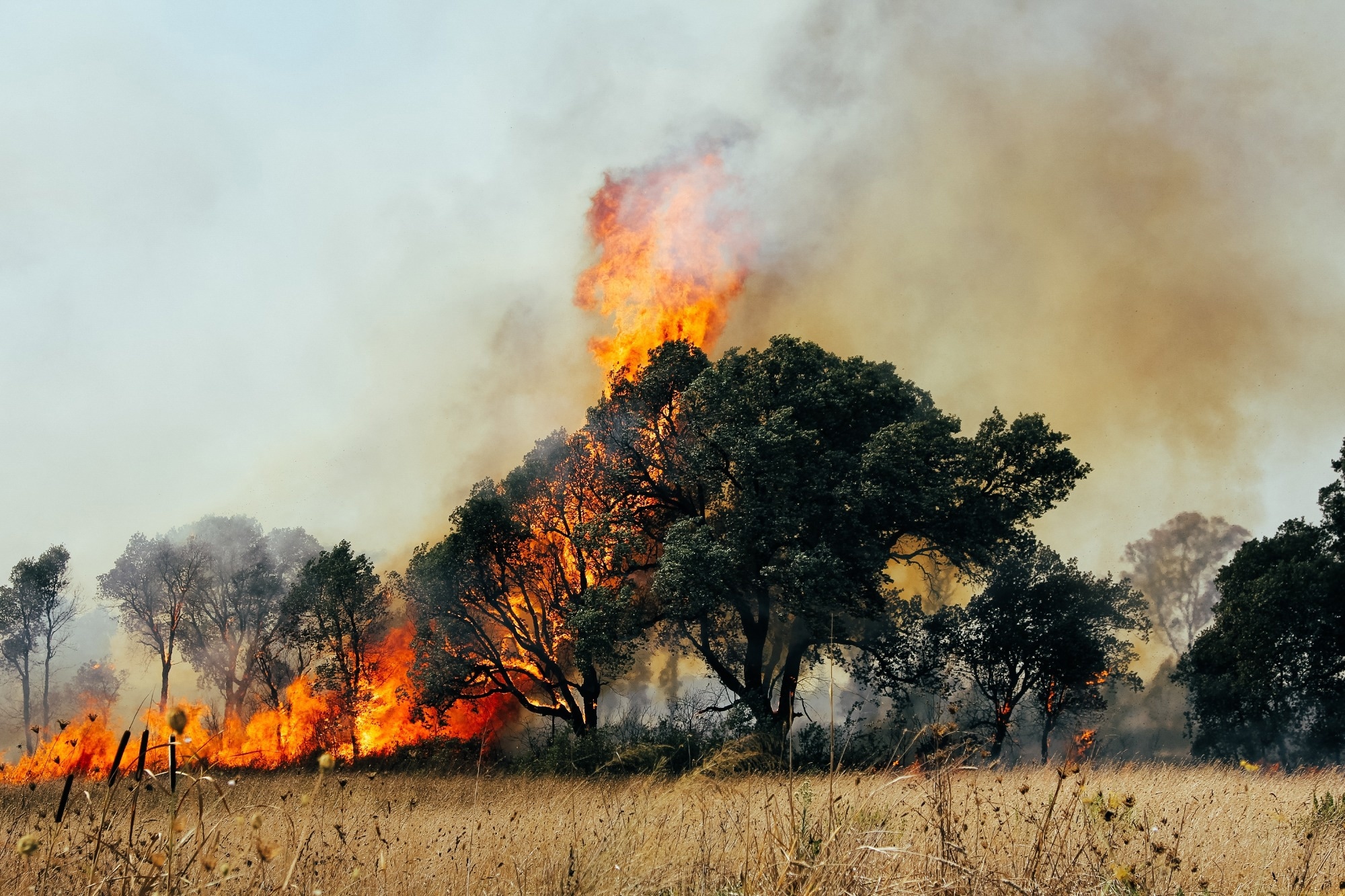The researchers stress that, as European governments delay meaningful climate action, they miss opportunities to improve and protect the health of their citizens while exacerbating health inequalities due to the disproportionate impact on vulnerable and high-risk groups.
 The 2024 Europe report of the Lancet Countdown on health and climate change: unprecedented warming demands unprecedented action. Image Credit: Fabrizio Maffei / Shutterstock
The 2024 Europe report of the Lancet Countdown on health and climate change: unprecedented warming demands unprecedented action. Image Credit: Fabrizio Maffei / Shutterstock
An ongoing health emergency
Global temperatures are inching closer to the 1.5°C increase, which, if exceeded, will severely impact climate health.
Europe has experienced a sharp rise in heat-related mortality of 17.2 deaths for every 100,000 people. As heat stress risk increases, vulnerable populations reduce their physical activity, which in turn increases the prevalence of non-communicable illnesses. Exposure to heat also impacts economic and social health determinants by reducing labor supply.
Increasing temperatures also increase the ranges of disease vectors and pathogens, including dengue, Zika, leishmaniasis, and malaria, which can colonize previously inhospitable regions, increasing the risk of a major outbreak.
Wildfire danger and drought also show an increasing trend across Europe. Due to the climate emergency, the number of individuals in Europe experiencing severe or moderate food insecurity increased by 12 million.
Climate change and health inequities
The health impacts of climate change are profoundly interconnected and do not affect all individuals equally. The effects are unevenly distributed due to variations in adaptive capacity, sensitivity, and exposure, which are determined by marginalization, socioeconomic development, and inequity (historical and present).
Often, the brunt of climate change's impact is borne by groups that are least responsible for the issue; these groups may also not be recognized as vulnerable or prioritized through policy intervention.
Within European countries, indigenous people, ethnic minorities, displaced people, migrants, low-income groups, pregnant women, women experiencing childbirth, and the LGBTQ+ community are among the worst impacted by the health effects of climate change.
For example, women are twice as likely as men to experience heat-related mortality or die due to inadequate diet. Food insecurity is significantly higher among low-income households. People living in highly deprived areas are more likely to be exposed to harmful particulate matter from wildfires.
Often, policy interventions and adaptation strategies are poorly designed; they do not consider equity and may exacerbate or perpetuate inequities in environment and health. The writers call for further research that delves into the unequal impact that climate change has on health so that adequate measures can be taken to promote health protection across populations.
Accelerating climate action
The contribution of European countries to global emissions of greenhouse gases has been historically high and continues to be so. These emissions benefited Europe in the form of economic growth, while other countries with low historical emissions disproportionately face the impacts of present-day and future environmental change.
Thus, climate change is linked with issues of environmental and social justice. In 2021, the per capita emissions for people in Europe were about 5.4 tons of carbon dioxide, nearly thrice that of the average person in South or Central America and six times that of someone in Africa. Despite this disparity, Europe has not been able to curb its emissions and will not achieve carbon neutrality before the end of the century.
Furthermore, as Europe imports services and goods produced elsewhere, the continent is also responsible for environmental pressures, including air pollution and emissions of greenhouse gases, in other regions, with significant health and climate impacts. The contribution of coal to Europe’s total energy supply increased in 2021, and more than half of European countries continue to subsidize fossil fuels.
The authors stressed the need to mitigate the impacts of climate change through bold actions and the benefits of such interventions, including reducing premature death and morbidity. The scientific and corporate communities' engagement with issues related to climate and health has increased, but individual, political, and media engagement remains low.
European nations, the researchers hope, will commit to a healthy and equitable environmental transition that acknowledges the region’s responsibility and contribution to the current climate emergency while supporting vulnerable communities.
Conclusions
This comprehensive assessment of climate change's impacts on health in European countries highlights the ongoing negative impacts on community health and notes that, without appropriate and swift action, these adverse effects will continue to rise.
Researchers noted that climate change is no longer a theoretical, hypothetical scenario expected to play out in the future; it is an ongoing emergency rapidly increasing in severity. Billions of people are at risk from this crisis, and European countries have a role to play in mitigating its impacts.
Journal reference:
- The 2024 Europe report of the Lancet Countdown on health and climate change: unprecedented warming demands unprecedented action. van Daalen, K.R., Tonne, C., Semenza, J.C., Rocklöv, J., Markandya, A., Dasandi, N., Jankin, S., Achebak, H., Ballester, J., Bechara, H., Beck, T.M., Callaghan, M.W., Carvalho, B.M., Chambers, J., Pradas, M.C., Courtenay, O., Dasgupta, S., Eckelman, M.J., Farooq, Z., Fransson, P., Lowe, R. The Lancet Public Health (2024). DOI: 10.1016/S2468-2667(24)00055-0, https://www.sciencedirect.com/science/article/pii/S2468266724000550